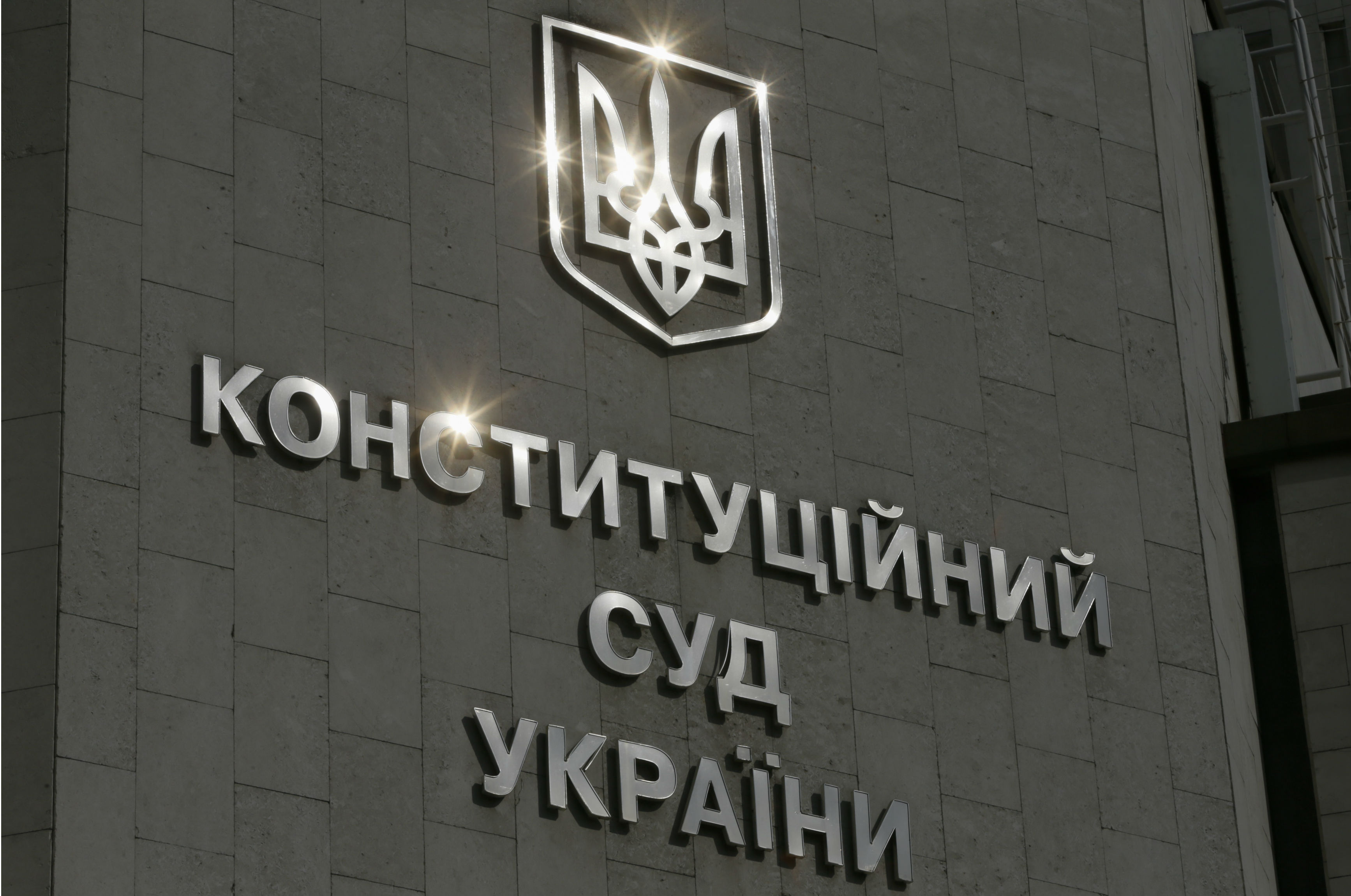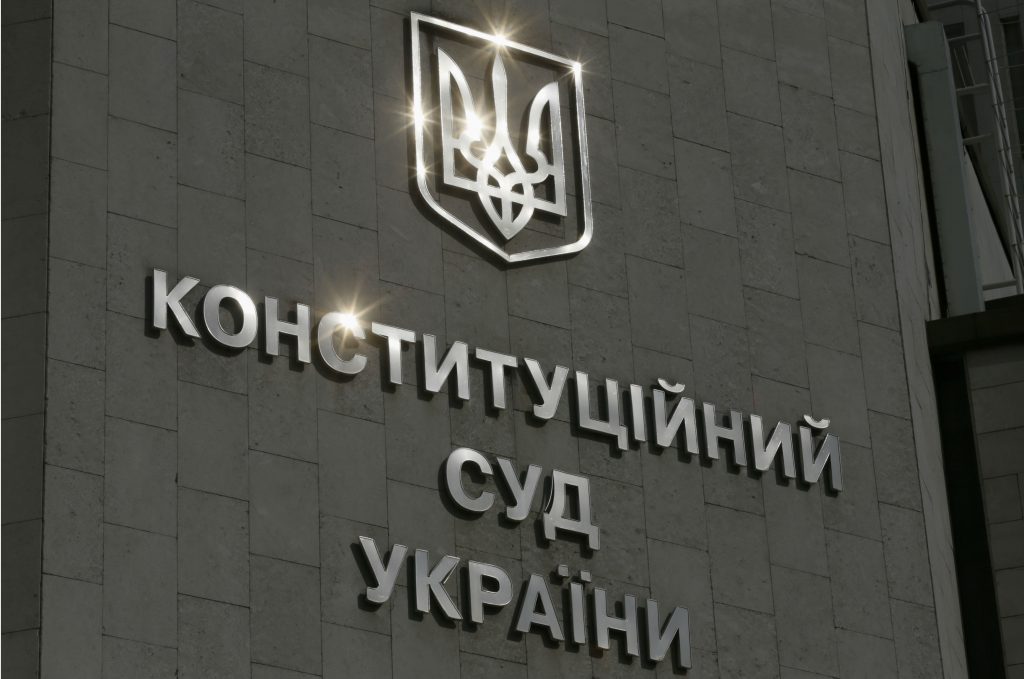 On March 15, Ukraine’s parliament passed an important anticorruption initiative that requires officials to file an electronic declaration listing their financial assets—meeting a requirement for visa liberalization. While Kyiv continues to fixate on President Petro Poroshenko’s new government, on April 18 the Constitutional Court of Ukraine (CCU) began to consider an appeal put forth by forty-eight former Party of Regions MPs to invalidate key provisions in the e-declaration law. A strong e-declaration law remains in place for now, but reformers’ anticorruption agenda hangs in the balance.
On March 15, Ukraine’s parliament passed an important anticorruption initiative that requires officials to file an electronic declaration listing their financial assets—meeting a requirement for visa liberalization. While Kyiv continues to fixate on President Petro Poroshenko’s new government, on April 18 the Constitutional Court of Ukraine (CCU) began to consider an appeal put forth by forty-eight former Party of Regions MPs to invalidate key provisions in the e-declaration law. A strong e-declaration law remains in place for now, but reformers’ anticorruption agenda hangs in the balance.
If this saga sounds familiar, it is. Parliament tried to water down the e-declaration law in February, but was ultimately rebuffed by a combination of pressure from civil society and the European Union, and ultimately a presidential veto. However, this latest attempt is serious and seems to have been largely overlooked by the West.
“If the Constitutional Court upholds this appeal by former President Viktor Yanukovych’s former allies, it would so weaken the e-declaration law as to make it useless,” said Evgen Chernyak, an analyst at Transparency International Ukraine.
The MPs asked the CCU to dilute the e-declaration law with four changes:
First, they want to remove parents and children not residing with the declarant from the scope of disclosure. This would allow officials to register ownership of ill-gotten gains in the names of their adult children and parents, thus freeing them from including these assets in their e-declarations.
Second, they want to remove the requirement to disclose unfinished construction projects, company assets, money, credits, loans, expenditures, second jobs, and movable valuables such as jewelry. This opens another door for officials to avoid declaring assets by simply holding them in alternative forms.
Third, the group seeks to eliminate the new National Agency for the Prevention of Corruption’s (NAPC) right to perform detailed checkups of officials’ disclosures by comparing them to their actual lifestyles. Scrutinizing officials’ lifestyles is the main way for the NAPC to check the accuracy of disclosures, and eliminating its ability to do this will make it nearly impossible to target corrupt officials.
Finally, the MPs want to end criminal liability for filing false disclosures. This would leave only administrative punishments applied at a judge’s discretion for false disclosures between the amounts of UAH 137,000 to UAH 344,000. For amounts above UAH 344,000 and below UAH 137,000, declarants incur no penalties at all, which makes little sense.
If the MPs succeed, “the e-declaration would still exist in theory, but filing e-declarations would now become just a formality for officials as they could make false filings knowing the new version of the law provided no mechanism to catch or punish them,” said Chernyak.
Activists worry the Constitutional Court will support the appeal. Six of the CCU’s sixteen judges are former Yanukovych allies, so “its natural these six judges will probably be favorably disposed to the appeal from the former Party of Regions MPs, they are natural allies,” said Oleksandra Drik, the head of Ukrainian NGO Civic Lustration Committee.
Kyiv’s activists are gearing up for another fight. They plan to educate the public about the threat now posed to the e-declaration law. The European Union just proposed visa-free travel in Europe for Ukrainians, a welcome move for many. By pointing out that the appeal could threaten this achievement, activists hope to build public pressure on the court to uphold the legality of the existing e-declaration law.
But there’s a timing problem with this strategy. Activists worry that the court will shrewdly decide the case after the European Union and Ukraine sign the final agreement for Ukraine’s visa-free status, thereby “los[ing] an important way to mobilize public support against this case since visa free [status] may no longer be at stake,” said Chernyak.
Civil society also plans to highlight how the appeal could devastate reformers’ anticorruption agenda. This is a strong point: more than 80 percent of Ukrainians tell pollsters that corruption is “somewhat of a problem” or a “significant problem.” Without the ability to effectively ascertain officials’ assets, detectives from the National Anti-Corruption Bureau—the new agency which investigates corruption—can’t build cases against corrupt officials. Given the public’s strong demand for Kyiv to combat graft, activists hope public pressure will convince the court to reject the appeal once and for all.
Josh Cohen, an ex-USAID project officer who managed economic reform projects throughout the former Soviet Union, is a business development professional. He also contributes to foreign policy-focused media outlets and tweets at @jkc_in_dc.
Image: The coat of arms of Ukraine is pictured on a building of the Ukrainian Constitutional Court in central Kyiv, Ukraine, March 10, 2016. REUTERS/Valentyn Ogirenko
